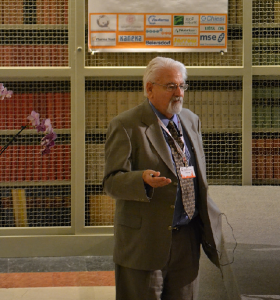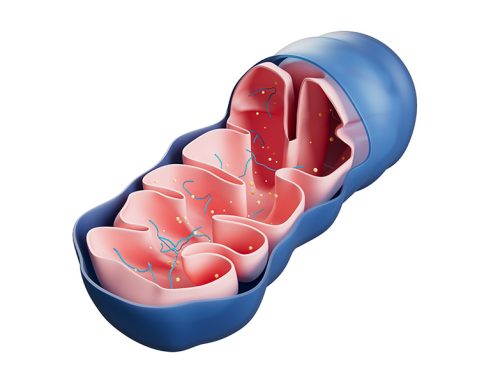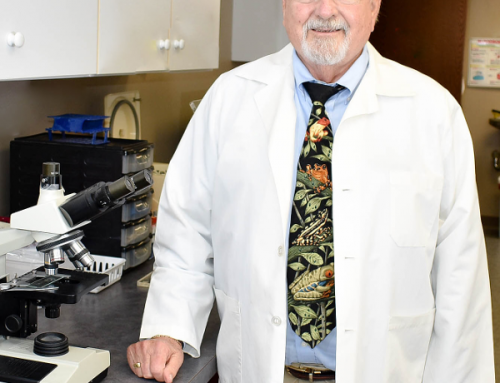
Patients diagnosed with chronic fatigue syndrome have abnormally low plasma (and muscle tissue) Coenzyme Q10 concentrations. Supplementation with a well-formulated Coenzyme Q10 preparation improves symptoms.
Chronic fatigue syndrome is a complicated illness. As its name states, it is a chronic condition, and it is characterized by a debilitating fatigue. The fatigue may be exacerbated by physical or mental exertion. Strangely enough, the fatigue is not alleviated by rest or relaxation [Mayo Clinic].
The cause of chronic fatigue syndrome is still unknown. The major symptom, the chronic fatigue, is also seen in such related conditions as myalgic encephalomyelitis (ME) and systemic exertion intolerance disease (SEID) [Mayo Clinic].
In this article, I focus on chronic fatigue syndrome. In a later article, I want to look at the research done on Coenzyme Q10 and fibromyalgia. Many people think that chronic fatigue syndrome and fibromyalgia are closely related. Both involve fatigue and pain. In fibromyalgia, debilitating muscle pain seems to be the major symptom. In chronic fatigue syndrome, the overwhelming sense of fatigue is the major symptom.
What role for Coenzyme Q10 in chronic fatigue syndrome?
Naturally, I wondered whether patients diagnosed with chronic fatigue syndrome should be taking a good Coenzyme Q10 supplement? After all, we know that Coenzyme Q10 supplementation has shown the following beneficial heart health effects:
- Improved the symptoms and survival of chronic heart failure patients [Mortensen]
- Maintained better heart function in healthy elderly adults (in combination with selenium supplementation and compared to placebo treatment) [Alehagen]
Low Coenzyme Q10 status and chronic fatigue syndrome
In 2009, Dr. Michael Maes and colleagues at the Maes Clinics in Antwerp, Belgium, measured the plasma Coenzyme Q10 concentrations in 58 patients diagnosed with chronic fatigue syndrome and in 22 normal healthy study participants.
The researchers found that the plasma Coenzyme Q10 levels in the chronic fatigue syndrome patients were significantly lower than the Coenzyme Q10 levels in the normal healthy study participants. Nearly half (44%) of the chronic fatigue syndrome patients had plasma Coenzyme Q10 levels below the lowest individual plasma Coenzyme Q10 concentration in the group of healthy study participants [Maes].
Moreover, in the chronic fatigue syndrome patients, the researchers saw a significant inverse association between plasma Coenzyme Q10 levels and the patients’ scores on the Fibromyalgia and Chronic Fatigue Syndrome Rating Scale, which is a scale used to determine the severity of the disease [Maes]. Lower Coenzyme Q10 status was significantly associated with higher levels of fatigue.
The chronic fatigue syndrome patients with very low plasma Coenzyme Q10 concentrations were also the patients who suffered the most from concentration and memory disturbances [Maes].
In their report, Dr. Maes et al pointed out that statin medications inhibit the body’s synthesis of Coenzyme Q10. Accordingly, Dr. Maes wrote, statin medications should be contra-indicated for chronic fatigue syndrome patients unless the patients are also prescribed a Coenzyme Q10 adjuvant treatment [Maes].
Key points from the Maes study
- Chronic fatigue syndrome is significantly associated with low plasma Coenzyme Q10 levels.
- Very low plasma Coenzyme Q10 levels in chronic fatigue syndrome patients are associated with neuro-cognitive disorders (concentration and memory disturbances).
- Chronic fatigue syndrome patients should be treated with Coenzyme Q10 supplementation to normalize the patients’ plasma and tissue Coenzyme Q10 concentrations.
Coenzyme Q10 treatment and chronic fatigue syndrome
In 2016, Dr. Jesus Castro-Marrero and his colleagues in Barcelona, Spain, treated chronic fatigue syndrome patients with a daily combination treatment of 200 milligrams of Coenzyme Q10 and 20 milligrams of nicotinamide adenine dinucleotide (NADH) or matching placebo for eight weeks.
The researchers used an oral ubiquinone Coenzyme Q10 supplement in this randomized controlled study. The ubiquinone form of Coenzyme Q10 is the completely oxidized form, the most well-documented form, and the form most commonly sold commercially.
The data from the study showed a significant reduction in maximum heart rate during a cycle ergometer test in the 8th week versus baseline cycle test heart rate for the study participants receiving the Coenzyme Q10 plus NADH treatment.
Moreover, the data showed that the participants’ reports of fatigue were significantly reduced in the active treatment group as contrasted with the placebo group [Castro-Marrero].
The Coenzyme Q10 plus NADH supplementation was safe and well-tolerated [Castro-Marrero].

Dr. William Judy of SIBR Research Institute explains the relationship between NADH and CoQ10. NADH is synthesized in the outer membrane of the mitochondria when vitamin B3 is spun into the citric acid cycle. NADH is then diffused into the inner membrane of the mitochondria where it forms a complex with Coenzyme Q10 (NADH – CoQ10 reductase ) and starts the synthesis of ATP energy.
Results from earlier studies of Coenzyme Q10 treatment of chronic fatigue syndrome patients
In a follow-up article, also scheduled to be published in April, 2017, I want to report in detail on the results of two earlier studies of Coenzyme Q10 treatment of chronic fatigue syndrome patients:
- A study by Dr. Per Langsjoen, Dr. Peter Langsjoen, and Dr. Karl Folkers
- A study by Dr. William Judy and Dr. Karl Folkers
What have we learned about Coenzyme Q10 and chronic fatigue syndrome?
- Coenzyme Q10 levels are significantly lower in chronic fatigue syndrome patients (as, indeed, they often are in chronic heart failure patients) than in the normal population.
- Coenzyme Q10 is an essential bio-nutrient that is a vital co-factor in the cellular energy production process.
- Coenzyme Q10 is safe and well-tolerated.
- Administration of Coenzyme Q10 on a daily basis improves the symptoms of chronic fatigue syndrome.
- More and larger research studies are needed.
Sources
Alehagen, U., Aaseth, J., & Johansson, P. (2015). Reduced Cardiovascular Mortality 10 Years after Supplementation with Selenium and Coenzyme Q10 for Four Years: Follow-Up Results of a Prospective Randomized Double-Blind Placebo-Controlled Trial in Elderly Citizens. Plos One, 10(12), e0141641.
Castro-Marrero, J., Sáez-Francàs, N., Segundo, M. J., Calvo, N., Faro, M., Aliste, L., & Alegre, J. (2016). Effect of coenzyme Q10 plus nicotinamide adenine dinucleotide supplementation on maximum heart rate after exercise testing in chronic fatigue syndrome – A randomized, controlled, double-blind trial. Clinical Nutrition (Edinburgh, Scotland), 35(4), 826-834.
Judy, W. V. & Folkers, K. (1993). Management of chronic fatigue syndrome patients with CoQ10. 8th. Intl. Symp. Biomed. and Clin. Aspects of CoQ, 55.
Langsjoen, P. H., Langsjoen, P. H., & Folkers, K. (1993). Isolated diastolic dysfunction of the myocardium and its response to CoQ10 treatment. The Clinical Investigator, 71(8 Suppl), S140-S144.
Maes, M., Mihaylova, I., Kubera, M., Uytterhoeven, M., Vrydags, N., & Bosmans, E. (2009). Coenzyme Q10 deficiency in myalgic encephalomyelitis/chronic fatigue syndrome (ME/CFS) is related to fatigue, autonomic and neurocognitive symptoms and is another risk factor explaining the early mortality in ME/CFS due to cardiovascular disorder. Neuro Endocrinology Letters, 30(4), 470-476.
Mayo Clinic. (2017). Diseases and conditions: Chronic fatigue syndrome. Patient Care and Health Information. Retrieved from http://www.mayoclinic.org/diseases-conditions/chronic-fatigue-syndrome/basics/definition/con-20022009.
Mortensen, S. A., Rosenfeldt, F., Kumar, A., Dolliner, P., Filipiak, K. J., Pella, D., & Littarru, G. P. (2014). The effect of coenzyme Q10 on morbidity and mortality in chronic heart failure: results from Q-SYMBIO: a randomized double-blind trial. JACC. Heart Failure, 2(6), 641-649.
Disclaimer: The information presented in this article is not intended as medical advice and should not be used as such.









[…] Coenzyme Q10 is such a useful adjunctive treatment for heart failure patients and for patients with low energy syndrome disorders. Coenzyme Q10, taken in the ubiquinone form, converts back and forth between the two forms […]
[…] Shortness of breath and lack of energy are common side effects of CoQ10 deficiency. This can erroneously be confused with […]
I have me/CFS where can I obtain Coenzyme Q10 please.
Hello Anthony –
Cannot see where you live.
In the UK, there is https://www.pharmanord.co.uk/all-products/daily-supplements/q10-gold
In the US, https://www.pharmanord.com/us-products/bio-quinone
In the EU, https://shop.pharmanord.eu/products/bio-quinone-active-q10-gold-100-mg
I hope this helps.
Best regards,
Richard